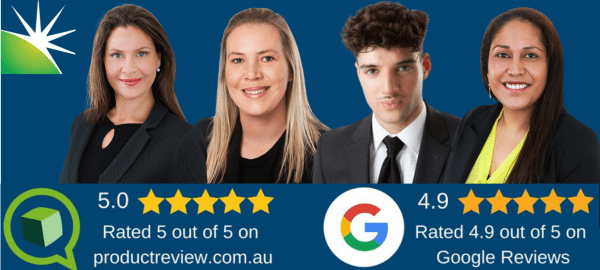Understanding Car Loans, Chattel Mortgages & Personal Loans:
Why the Same Car Can Cost You More (or Less) to Finance
Whether you’re buying a car for personal use or for your business, the way you choose to finance it can make a big difference to your overall cost, repayments, and approval experience. It’s not just about the interest rate—it’s about the type of loan, how lenders assess you, and what your financial profile says about you.
Chattel Mortgage vs Car Loan vs Secured Personal Loan: What’s the Difference?
1. Chattel Mortgage (for business use):
This is a commercial finance product for those purchasing a car or equipment primarily for business purposes (usually 50%+ business use).
The asset is used as security, and the GST can often be claimed up front.
Businesses and self-employed individuals may benefit from better rates and tax benefits.
Typically suited for tradies, contractors, or ABN holders buying utes, vans, or business-use vehicles.
2. Secured Car Loan (for personal use):
This loan is secured against the vehicle, and typically used for everyday buyers purchasing a car for personal use.
Interest rates are usually competitive if the car is new or near-new.
If the car is older, higher rates and stricter lending conditions often apply.
3. Secured Personal Loan:
This is a broader loan where an asset (not always the car) is used as collateral.
Can offer better rates than unsecured loans.
May have more flexible usage but less favourable terms than car-specific finance.
Let’s unpack the key differences and what really matters when you apply for finance.
Why Do the Rates and Fees Vary So Much?
Lenders price risk—and different products carry different levels of risk from their perspective.
Here’s what affects your rate:
Purpose of the vehicle: Business-use loans are typically seen as lower risk because the vehicle is income-generating. That’s why chattel mortgages often come with sharper rates than personal-use loans.
Your profile: If you’re asset-backed (meaning you own property—even with a mortgage), you’re a more attractive borrower. Lenders are more willing to offer better terms because you’ve demonstrated an ability to manage debt and hold long-term assets.
Your age & credit history: Younger applicants or those with a thin credit file are typically seen as higher risk. This can lead to higher rates or reduced approval limits.
The type of loan: Unsecured loans will nearly always come with higher rates than secured ones, because there’s nothing for the lender to recover if things go wrong.
Deposit and/or Trade-In: Why It Helps
Contributing a deposit or trading in a vehicle can significantly improve the finance terms you’re offered. Here’s why:
It creates equity in the purchase upfront, reducing the lender’s risk.
It demonstrates financial capacity—showing you’ve been able to save or already own assets.
It can lead to better interest rates and approval outcomes, especially if you’re on the edge of qualifying.
Even a modest deposit or trade-in can help tip the scales in your favour when lenders assess your profile.
Bank Statements Are Your First Impression
Before you apply for any type of finance—secured or unsecured—it’s worth understanding what lenders will really look at.
Most lenders will ask for 3–6 months of electronic bank statements as part of their approval process. Here’s what they’re watching for:
Overdrawn accounts or dishonours: These are red flags that suggest poor cashflow management.
Use of payday lenders or BNPL services (ZipPay, Afterpay): Lenders don’t like seeing frequent reliance on short-term credit.
Cash withdrawals after income hits: If income is withdrawn immediately—especially in cash—it raises concerns about money management and transparency.
Inconsistent spending patterns or impulse buys: Frequent discretionary spending or irregular expenses can paint a riskier picture.
In short, your day-to-day spending habits are just as important as your credit score when applying for finance.
Final Thoughts
The same car could cost you $1,000’s more (or less) depending on how you finance it and how your application is presented. Working with an experienced team or Mortgage & Asset Finance brokers who understands both asset finance, Home Loans and personal lending is key to finding the right fit—and avoiding unnecessary costs.
At WhiteStar Finance & Conveyancing, we assess your whole situation and tailor finance options based on your goals and how lenders will view your profile. Let’s take a look at your options and help you secure the right loan the smart way.
We Can Help With:
Car loans
Equipment or asset finance
Home Loan Refinance options
- Asset & Personal Loan Refinances
Business cash flow support
EOFY is a popular time to get organised—so if you’re planning to buy, now is a good time to start the conversation.
Let’s chat when you’re ready.
Give us a call 1300 652 842 , jump on live chat, or send an email.
Or if you’d prefer to start with a bit more info go to CAR & ASSET FINANCE
We’re here to help when you’re ready.

